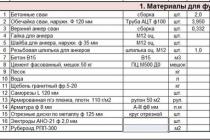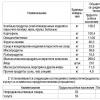Details
And the economist is about money, and the financier too. Is there a difference between them? What is the difference between an economist and a financier in general and in particular? Let's find out.
Let's start with the fact that economics is the science of good housekeeping. This science is also applicable to control, analyze and manage your personal resources– salary, housekeeping, etc. In general, the economy is a very necessary thing for any kind of economic activity.
And that is why, due to its applied properties, usefulness and demand in many areas, it is very popular among young people as a profession that you want to get. For many years, economists have been in the top of the most popular professions among applicants. When entering a university, many people think about which faculty to choose.
Now there are many options for possible specializations. The question arises as to how they differ from each other. For example, what is the difference between an economist and a financier? Which faculty is better to enter - Economics or, say, Finance and credit? Will the field of activity of such specialists differ?
Who is an economist?
Economists are engaged in economics at the enterprise. These are specialists in the field of planning, analysis and management of financial and production activities organizations. Their responsibilities include economic analysis all necessary indicators, budget planning, calculation production costs and the effectiveness of planned changes and innovations, strategic work to improve the efficiency of the enterprise. An economist prepares data, processes them, and stores economic information.
What is a financier?
The financier is responsible at the enterprise for everything related to the conduct and execution of financial transactions, the most optimal and efficient distribution monetary resources, profitable and competent investment of working capital financial resources enterprises. Also, financiers are those who deal with professional management capital, own, borrowed or capital of the employer.
Differences between an economist and a financier
These two professions are related by the fact that both an economist and a financier work with cash flows. What distinguishes an economist from a financier lies in the more specific work of a financier with finances. A financier is a practitioner, he is looking for ways to increase the available capital, he directs them, invests, analyzes their movement, is engaged in budgeting, investing assets. The more income the money brings, the better the financier works.
The economist is more of a theoretician, he analyzes economic information, develops measures aimed at increasing production efficiency, more competent organization of labor, reducing losses and untargeted expenses.
If you say in one sentence how an economist differs from a financier, then you can formulate it like this. The economist analyzes the data of various economic activities of the company, and the financier looks for ways and opportunities for successful investment of financial resources, and also manages financial flows.
What is the difference between an economist and a financier?
It should be added that the effectiveness of the work of an economist can only be assessed in long term in terms of quality indicators. And it is possible to evaluate how efficiently a financier works at any time and for any period, based on quantitative indicators.
What exactly the economist does not differ from the financier is that in order to become the first or second, you need to get a higher education. Although, of course, this is not always the case. A young specialist can start his career while already studying at the senior courses of the university. It is best to choose a prestigious university with a good reputation, since reputation means a lot in the world of finance and a graduate of a well-known university with good rating and a solid history will make it easier to find a job.
Best to choose educational establishments, for which economics is a core discipline, such as the Russian University of Economics. G.V. Plekhanov or the Higher School of Economics, or public universities and institutions, training in which is also an unconditional sign of quality, such as Moscow State University. M.V. Lomonosov or MGIMO.
To enter such universities, you will have to make a lot of effort, but in the future they will pay off. After all, an economics diploma obtained, for example, at MGIMO, is much more prestigious than an economics diploma obtained, say, at the Agricultural Academy.
Of course, this is true if you plan to build a career in the world of finance and economics. If you plan to work in a particular industry National economy, then it will be more convenient to enter a non-core university specializing in training personnel in this industry.
Well, in conclusion, it is worth mentioning how an economist differs from a financier, in addition to all of the above. An economist can work in almost any field and in any enterprise. The scope of their talents for a financier is more limited, but at the same time, allows you to achieve major success.
After five years of study in the specialty " finance and credit» who can work? Graduates are well aware of what they will have to face and in what area to work, but they cannot name a specific position. Internship helps to clarify the situation somewhat and get a general idea of the future specialty. But not all universities have the opportunity to arrange a full-fledged practice in a normal company.
General idea of the specialty.
Now you finance specialist and the doors of all the offices that are looking for an economist on their staff are open before you. You will have to work with funds - analyze expenses and incomes, withdraw and predict profits for the future.
Keep in mind that during accounting you will have to analyze the cost of goods and objects in order to more accurately estimate current situation and predict the dynamics of change. But the level of duties, responsibilities and your own income depends on the degree of qualification.
It is clear that yesterday's graduate will not be trusted with analytics and forecasting. Some work experience and qualifications required.

Six places where you can safely carry documents.
In what structures can a holder of a diploma in majors in finance and credit?
- Banks. Any such institution will be happy to have a qualified specialist. Do not think that you will have to start with the position of a cashier, graduates with higher education are valued somewhat higher.
- audit companies. Reporting will require some knowledge of accounting, but you can take almost any position.
- State organizations. Almost all finance-related structures are interested in your work. Beginning tax service and ending with the Treasury.
- Insurance companies.
- Investment funds.
- Private business enterprises.

Insurance business and investment issues.
The last two are worth mentioning in more detail. It was the collapse of insurance companies in 2008 that caused the global financial crisis, but you should not distrust all organizations of this profile because of this event.
There are a number of large corporations in Russia, there is no one monopolist in the entire market. So there are always job opportunities, thanks to competition and the rapid growth of firms.
For investment funds you are a welcome guest. But you can get some real benefit only if you cope with the position financial analyst. Before sending your resume, carefully compare your capabilities and the desired position, if the requirements are too high - choose another one, your diploma allows it.

5 in-demand professions for graduates.
BUT who will have to work in these structures? Here is an incomplete list:
- Financier and financial manager.
- Analyst.
- Trader.
- Control officer.
- Accountant.
The first option is suitable for employees of private enterprises, initially you have to work ordinary financier, but after a few years you can count on the position of head of department or financial manager. This is the best option, because you do not need to apply the maximum of your knowledge and skills.
But career prospects and financial well-being are very good, you just need to endure the first few years and join the team.
If you have ambition, improve your skill level and aim for the opportunity to apply for position of analyst. Relations with superiors will not particularly affect the speed of progress, you will most likely have to look for a new job. It just so happened that not all companies have the desired position, it is more typical for large corporations or organizations with a narrow specialization.

Own business or related specialties?
Workers who have reached the pinnacle of skill will suit the role trader. It is foolish to go to a brokerage house and look for a vacancy there when you can make a profit on your own.
It will take some start-up capital, but it should have been collected long ago if you decide to go “free floating”. No one can guarantee permanent profits and reliability here, playing on the stock exchange is fraught with losses and long-term crises as a result of making the wrong decisions. But even a few years of fruitful work can significantly help in solving the financial issue of the whole family for the coming years.
If you couldn’t find a more interesting and profitable specialty, you can always get a job as an accountant for any enterprise. With the prospect of taking the place of chief accountant in the future.
We would not advise you to stay in this chair for a long time, because if you work not quite in your main specialty and within a few years you will lose all your skills. This can be justified if there are good prospects, high wages, personal interest. The absence of other offers is not the reason. Better to start a career work as a financier.
Decide for yourself whether it is worth graduating from "finance and credit", you already know who you can work with. The knowledge gained during training can help with opening your own business, because the correct distribution of funds is important in any industry.
Video about the specialty "Finance and Credit"
Where can you go to work after five years of study in the specialty of finance and credit? Graduates of many universities are well aware of what they will face and in which area they will mainly work, but they cannot choose one area and the direction of their career. The practice of other people helps to more clearly understand the situation and determine the future position and profession. But not all universities are able to conduct a real practice in a normal working company.
The main thing in this specialty
If you have been educated as a specialist in finance and credit, then the doors of many offices and financial enterprises, industries, industrial companies and banks that will gladly hire an understanding financier. You will have to conduct operations with funds, determine the total amount of income and expenses of the enterprise, take into account and predict future income and losses.
It is important to remember that in the process of work, you will have to conduct a comprehensive analysis of the price of goods and services in order to most accurately determine the current situation on the market and predict further price jumps up or down. Mostly, the number of your duties, responsibilities and level of income will be directly proportional to your knowledge and qualifications.
Of course, such a serious task as forecasting future income and compiling reports will not be trusted by a simple graduate who has recently completed his studies and education. To do this, you will need to gain some experience in your specialty, as well as take refresher courses.
Where can you get a job after graduation?
In what areas and enterprises can a graduate of the specialty finance and credit get a decent job?

Insurance and investment companies
 We should talk about them in a little more detail. It was mistakes on the part of insurance companies in 2008 that led to a global crisis, but because of this, one should not completely refuse to work in such institutions.
We should talk about them in a little more detail. It was mistakes on the part of insurance companies in 2008 that led to a global crisis, but because of this, one should not completely refuse to work in such institutions.
Russia has many large financial institutions, monopolies do not exist here. So graduates will always find the possibility of good employment, based on competitive qualities and the rapid growth of manufacturing companies.
Investment firms will be glad to have you as an employee. But you can get real profit only if you are able to fully cope with the specialty of an analyst of financial income. Before sending your resume, check the position and your desire again, if the company overestimates the requirements for employees, then choose another company, because your diploma can help you with this.
The most popular professions for graduates of this profile
What position can be taken in this profession?
- Financier and financial manager.
- Revenue Analyst.
- Trader.
- Control officer.
- Accountant.
The first choice would be well suited to employees in private enterprises, at the initial stage, you can work as an ordinary financier, but in the future career growth will bring you to the head of the department or to the financial manager. This position is the most comfortable, because it will not need to use maximum amount your knowledge and skills.
And the opportunity financial support and career growth in this area is very good, you just have to work for a few years and integrate well into the general team.
If you want to become an analyst, then try your best to improve your skills and strive to increase your practical knowledge in this area. It so happened that this specialization is not observed in all financial-type firms, it is more common in large-scale production or in organizations with a narrow range of specialization.
Is it worth it to open your own business?
 Employees who have reached the top of their development and career growth will go to such a role as a trader. It's a little silly to go to a broker's office and try to make a profit there when it is quite possible to earn income under self-management.
Employees who have reached the top of their development and career growth will go to such a role as a trader. It's a little silly to go to a broker's office and try to make a profit there when it is quite possible to earn income under self-management.
For such a business, you will need a small initial capital, but it should already be accumulated if you are going to go into your own business. Guarantees of constant prosperity and full reliability no one can give here, since entrepreneurship can lead to crises and some losses due to incorrect decisions taken. But just a few years of work in such a field will help secure your future life for years to come.
If you could not find a more profitable and interesting job for yourself, then you can become an accountant at any financial institution. Career growth to the position of chief accountant is possible here. But experts do not advise staying in this position for a long time, since working in a field other than your specialty for many years can lead to the loss of skills that you have acquired for the financial sector. But this can be justified if you have career growth, high wages and a personal attachment to your favorite business. At the beginning of your career, a financier is best suited.
What subjects need to be taken for Finance and credit:
- Maths ( general level or profile)
- Social studies (at the choice of the university)
- Russian language.
- Foreign language.
The minimum score for passing is from 235. The form of education can be both stationary and part-time. The term is 5 years. After graduation from the university, the future employee will have a specialty in finance and credit.
Profiles of the direction "Economics":
Finance and credit
Accounting, analysis and audit
Taxes and taxation
Profile "Finance and Credit"
This profile enables students to gain extensive knowledge about the processes of formation and execution of budgets at different levels, the procedure for planning accounting and reporting, organizing and managing the cash flows of enterprises, the investment activities of business entities, the peculiarities of organizing the finances of enterprises and organizations; banking and insurance business.
Graduates of this direction are equally well versed in financial management, insurance, loans, financial management, pricing.
Knowledge and skills of graduates of the specialty allow them to apply for prestigious jobs in serious organizations: in the economic and financial services of enterprises and organizations of all forms of ownership, in state bodies of the federal, regional and municipal levels, banks, stock exchanges, financial and insurance companies, investment funds. The services of graduates of the specialty are in stable demand in the labor market, and they themselves have good prospects for further professional and career growth.
Job Opportunities very extensive: at the enterprise, graduates of the specialty "Finance and Credit" can conduct professional work as economists, financial analysts, specialists in the planning and economic department, investment consultants, heads of financial departments, financial directors , as well as in other positions requiring knowledge of the tools and methods of financial management, the basics of the organization of monetary regulation, money and trade turnover.
Ample opportunities for work are opened up for our graduates in the banking sector. Bank departments involved in lending are in need of competent loan inspectors and lending specialists. In other structural divisions of banks, economists are required for foreign exchange and deposit transactions, for interbank settlements, for securities, economists-analysts, specialists in working with plastic cards. Having started his professional career in one of these positions, a graduate of the specialty "Finance and Credit" has ample opportunities for career growth, development and transition to more responsible and interesting positions of heads of relevant departments of banks.
Experts who know the insurance business and master the methods of risk management and financial analysis can lead professional activities as insurance agents and brokers, expert insurance consultants, economists and, finally, presidents of insurance companies.
Another interesting area of activity for graduates of the specialty "Finance and Credit" is the work of financial brokers, whose main field of activity is stock trading. Such specialists may work in investment companies and banks, brokerage and management companies, structural subdivisions of the stock market.
Profile "Accounting, analysis and audit"
The demand for specialists of this profile is very high, since no enterprise can function without accounting.
A graduate of this profile is a bachelor who has knowledge in the field of accounting, analytical, financial, consulting, management, control and audit activities. A bachelor of this profile has basic theoretical and practical professional skills in the field of financial, managerial and tax accounting
The accountant is able to comprehensively analyze the results of the economic activities of the organization, identify problems, violations and errors in the implementation of economic activities and suggest ways to eliminate them. Able to audit and analyze financial statements; keep accounting records in an automated way using computer programs. He has the necessary legal knowledge in the field of contractual and claims work, knows how to widely use legal documents in his activities.
The task of an accountant is to account, plan and control cash, income and expenses, property and liabilities of the organization. He takes part in solving financial issues, works with the tax authorities, is able to suggest ways to minimize the taxation of the organization.
A bachelor with a degree in Accounting, Analysis and Audit can work in commercial, non-profit and budgetary organizations, banks, financial companies and tax authorities.
Professions: accountant, economist, financier, auditor.
Profile "Taxes and taxation"
Taxes and taxation are an important link economic relations in society. Taxes are the main source of revenue for the budgets of all levels and an effective tool for state regulation of socio-economic relations. Without knowledge of specific tax proceedings, it is difficult to imagine the head and leading specialists (accountant, economist) of a modern company.
Profile "Taxes and taxation" is unique, because. includes training in economics and law. Graduates of this profile are prepared for work in various fields of activity. Highly qualified training in the field of accounting, analysis and audit; Civil, Criminal, Administrative processes; tax consulting in various industries. Knowledge in the field of law allows you to correctly apply the norms of tax, civil and other types of legislation in your activities, as they regulate the construction of financial relationships between the state, legal entities and individuals.
The presence of education in the field of taxation, the ability to navigate the economic processes taking place in the country, as well as knowledge of the legal aspects of life is and will be in demand.
Economist in the profile "Taxes and taxation" has the necessary skills of practical work in the tax and budgetary sphere, in legal, economic services of enterprises, organizations, institutions; have knowledge of the laws and features of the development of the tax system of the Russian Federation, as well as domestic and international experience in the management and functioning of fiscal systems; knows how to use knowledge of the theory of taxation in their practical activities; knows the basics of organizing tax regulation; sees the prospects for the development of the tax system and his professional growth.
Tax specialists are in stable demand in the labor market, with good prospects for further professional and career growth and the widest opportunities for work not only in tax system but at enterprises and organizations of all forms of ownership.
The professional activity of a graduate in the profile "Taxes and taxation" can be carried out in all parts of the tax system at the federal, regional and local levels. It is perhaps worth noting that tax officials are state civil servants, whose legal and social protection is guaranteed by the state.
However, the field of activity of tax professionals is not limited to inspection alone. Knowledge of the norms and laws in this area makes our graduates almost indispensable advisers for any organization.
A promising area of activity for a tax specialist is the practice of tax consulting. The profession of a consultant on taxes and fees opens up amazing prospects for those who own it. A relatively recent direction related to the accounting support of a large company or a private entrepreneur and aimed at optimizing the taxation process is extremely in demand. An additional opportunity for self-realization is provided by consulting on filling out tax returns. Today, more and more professionals are needed in this field of activity, and there is clearly not enough relevant personnel.
By choosing the “Taxes and taxation” profile, you can get the most prestigious job and contribute to the development of the national economy and the economy of the region!
We continue the conversation with experts in various fields of law and economics about all the intricacies of preparing students for a specific profile. This time, our questions about the profile of finance and credit were answered by Associate Professor of the Department of Finance and Prices of the PRUE. G.V. Plekhanov, Ph.D. .
ConsultantPlus: Tell us, what is the peculiarity of the "Finance and credit" profile? What prospects does it open to graduates? Who can they work and in what areas will they be able to realize themselves?
DI. Stepanova: A feature of the profile "Finance and Credit" is the universality of the acquired knowledge, it provides a wide range of financial skills needed in modern economic world. Our students receive a broad education that allows them to work in commercial enterprises, in the market valuable papers, in investment companies, on state enterprises as economists, financiers, financial directors, tax inspections and other government bodies.
The purpose of studying the disciplines of the profile "Finance and Credit" is the assimilation theoretical foundations monetary circulation, finance and credit, as well as basic principles organization and functioning financial market and its individual segments: cash, credit, currency, stock and insurance.
Training of unique managerial personnel in the field of organization, planning and regulation is provided financial flows at all levels of the economy. This allows graduates to use the acquired knowledge and skills in large, medium and small businesses, create and develop their own business, work in state structures to continue graduate studies.
ConsultantPlus: In your opinion, what are students most often guided by when choosing a profile: their interest in a particular area of law, its popularity or prospects?
DI. Stepanova: Now students prioritize, first of all, the positions and salaries that they will receive after graduation. Profile "Finance and credit" and a diploma of the Russian Economic University. G.V. Plekhanov allow graduates to hold high positions in leading organizations and receive very high wages. AT market conditions everyone should have knowledge in the field of finance, therefore our specialty is always in demand, including in the field of additional education for engineers, managers and other specialists.
There are also students already working in finance or the securities market who understand that they need in-depth knowledge. Thus, the profile is very popular for objective reasons. The profession is in demand, as being a financier is prestigious and promising.
ConsultantPlus: Tell me, after a student chooses a profile, does his education somehow change? Does he begin to study some disciplines in depth, does he conduct some kind of scientific work, etc.?
DI. Stepanova: Undoubtedly. Students follow a curriculum that includes learning more financial disciplines compared to other profiles.
The emphasis is on learning international finance, state and municipal finance. Thus, the graduate will be able to work in almost any financial unit at the state, municipal, corporate and other levels. Also, much attention is paid to obtaining practical skills through the organization of business games, solving financial cases, performing laboratory and analytical work. Students write term papers focusing on specific situations financial activities Russian and foreign organizations actively use statistical data from open sources. Many students already in the bachelor's degree begin to conduct scientific research, the results of which they talk about at conferences and in articles published jointly with teachers.
ConsultantPlus: In your opinion, what role does the choice of this profile play for a student in the future? Does this choice affect future employment? Does it mean given choice, what future specialist can only work in this area?
DI. Stepanova: Profile selection is very important. Graduates will be able to work not only in Russian structures, but also in international companies and international financial institutions. In the course of training, students develop panoramic financial thinking, combined with practical skills for solving problems of managing comprehensive cash flows based on modern theories.
Students with a broad outlook and vision of development directions modern world and economies everywhere will find a good place to work, including in the international financial market.
Much depends on the personal qualities of the graduate. If desired, perseverance, responsible attitude to business, our graduate in any field will be able not only to successfully apply existing skills, but also to acquire new ones in the shortest possible time.
ConsultantPlus: Who, according to your observations, most often chooses the "Finance and credit" profile? Describe these students, what are they like?
DI. Stepanova: As a rule, students with high level intelligence and systems thinking. The ability to see the prospects for the development of certain processes, to have a flexible mind, the skills of conducting discussions, speaking in public are the important qualities that a modern financier should possess. Our student reads a lot, observes a lot, knows a lot and has his own reasoned opinion, is interested in other areas of economic life. At present, it is of great importance how confident a person feels in the information field of any nature. Many of our students seek employment and self-realization in the international financial market.
ConsultantPlus: How many students specialize in your department today?
DI. Stepanova: On the this moment The department graduates over 400 graduates a year. The majority of graduates are bachelors Faculty of Finance. Also large graduations of bachelors at the faculty of distance learning. In the magistracy in our department - up to 90 graduates per year.
ConsultantPlus: How many graduate students are there in your department? Do students aspire to go to graduate school? What are the prospects for graduate students at your department?
DI. Stepanova: First of all, it should be mentioned that students can enter postgraduate studies after graduating from the master's program. This lengthens the period of study, and not everyone can afford such a long period of knowledge acquisition. At the moment, about 15 graduate students are enrolled in our department. Requirements for graduate students are quite high, entrance exams are difficult. Upon admission, graduate students are interviewed and rigorously selected. Moreover, the requirements for applicants are increasing every year. In addition, an abstract should be prepared on the proposed topic of the dissertation. Often postgraduate students are our students who studied with us in the magistracy and already have experience in writing a master's thesis, know our teachers, are satisfied with the training and willingly continue it. Postgraduate students participate in scientific conferences, are published in scientific journals and collections, study in depth the relevant disciplines.
Graduate students are required to conduct pedagogical work, which helps them when writing a dissertation. Subsequently, many graduate students remain at the department and work as teachers. Many of our teachers have previously completed postgraduate and doctoral studies at the Russian University of Economics. G.V. Plekhanov. The Situational Center for the Socio-Economic Development of Russia and the Regions operates on the basis of the university Russian Federation on a modern information technology base, which provides postgraduate students with high efficiency of scientific work.
ConsultantPlus: Do you have data on how many graduates of your department work in the chosen profile? Perhaps some of them managed to find themselves in other areas, if so, in which ones? Can you name one of your graduates who you are especially proud of?
DI. Stepanova: According to my data, up to 80% of the graduates of our department work in the chosen profile. I would not particularly like to single out someone, since there are many talented and bright personalities among our graduates. And we will see many of them on high financial positions. So a worthy replacement for such graduates of the Russian University of Economics is growing. G.V. Plekhanov, as Tatyana Alekseevna Golikova, Maxim Stanislavovich Liksutov, Tatyana Vladimirovna Paramonova, Sergei Nikolaevich Gorkov, Oleg Vladimirovich Deripaska, Mikhail Mikhailovich Zadornov, Vladimir Alexandrovich Mau and many others.
ConsultantPlus: In your opinion, for success in the profession, what character traits should a specialist who has chosen the "Finance and Credit" profile have?
DI. Stepanova: A specialist in finance and credit must be a pedantic and systematically thinking person, have a broad outlook and vision of the development directions of the modern world and the economy, know information systems, have decentralization skills (the ability to see a problem from different angles) and make diverse decisions.
ConsultantPlus: How do you feel about modern information technologies? Do you recommend that students study ConsultantPlus?
DI. Stepanova: Modern information technologies are of priority importance in our society. They not only help the student to write term papers, theses, perform laboratory, computer and analytical work, but also contribute to the qualitative development of the specialty by obtaining up-to-date data and providing a chronological retrospective. Many disciplines of our department require intensive study normative documents which are constantly changing and expanding. And in our age information technologies without literate information systems, such as ConsultantPlus, nowhere!
"Who owns the information, he owns the world." Therefore, in all halls of the library, in all buildings of the Russian University of Economics. G.V. Plekhanov and the ConsultantPlus system was installed in computer classes. I recommend that my students subscribe to to be aware of the most important changes in Russian legislation. It is also useful for students to have a subscription to promotions and free student events from the ConsultantPlus company and its training center. They organize very useful and interesting meetings with practitioners, business games, student competitions, etc.
ConsultantPlus: What advice would you give to your students and students of other universities who have opted for the "Finance and Credit" profile? What should they prepare for, what qualities of character to develop, what disciplines should they pay special attention to?
DI. Stepanova: Students who have chosen the profile of finance and credit should pay attention to general fundamental disciplines, economic theory, statistics as a fundamental basis for mastering subsequent disciplines, should be maximally involved in the educational process from the very first days.
In parallel with the development of textbooks, it is necessary to constantly monitor changes in the Russian and global financial markets. Be interested not only in finance, but also in politics, new technologies, since in our age of globalization, all processes, both geopolitical and economic, affect the financial sector. In order to properly conduct the financial analysis and situational forecasting, you need to have a broad outlook, be comprehensively aware. This can be facilitated by daily viewing of financial market news, attendance at master classes, trainings and open lectures by practitioners, round tables on topical contemporary issues.
I advise graduates not to stop learning, learn new things, constantly expand their professional capabilities, master the skills of complex and holistic thinking, look at the world around them with open eyes in order to accept, among other things, non-standard solutions. Only your curiosity financial sector will lead you to success, because, being interested in new trends in the market, you will always be one step ahead of the rest!














